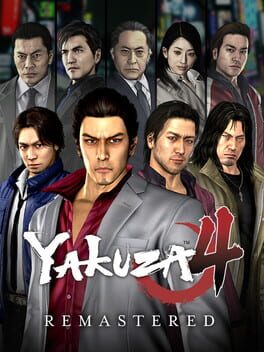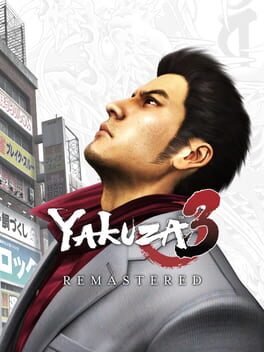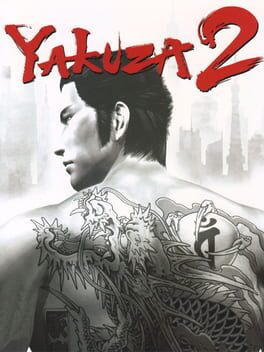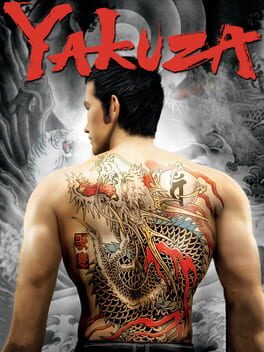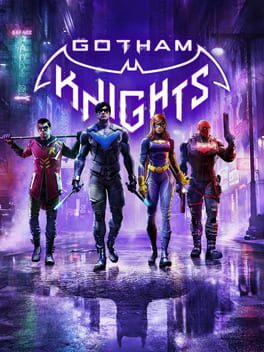Murph04
2019
The end of every Yakuza game is usually a moment where the game tries to ratchet up the ante by having a massive exposition dump where it's revealed the illuminati are involved and the entire plot was just a 5D chess move of the real mastermind.
Yakuza 4 doesn't do that. It doesn't need to. It revealed it's true mastermind a while ago and has their motivations and machinations tie directly to the plot up till that point.
Indeed, all that happens in the final chapter of Yakuza 4 is it's 4 protagonists stepping out of a helicopter in their Sunday best while one smugly declares "Alright, everyone pick a butt to kick." Leading to each of them squaring off against their narrative foil.
This bucking of series pitfalls is seen across the game. Each of the previous entries I heavily criticized for abysmal pacing, especially how they will distract their already gripping narratives with weak tangents. Yakuza 4 doesn't do that. Each of it's 4 protagonists have about 5 hours of story content before you leave them to explore the next one in the list. The game takes the bold approach of not having you play series lead Kiryu until the final moments, having him act as the cavalry to rescue the previous 3.
Much like Kiryu in his first outing, these 3 new protags are immediately likeable with their own quirks and casts.
Akiyama, the money-lender with a heart of gold and straight-up Spike Spiegal clone. Saejima, legendary hitman haunted by his past and on a quest for answers. Tanimura, immigrant beat cop who's pursuit of his father's killer leads to uncovering a web of corruption (this game is exceptionally ACAB)
The game is masterful in how it gets you to experience the same mechanics and city incredibly differently based on who you're playing. Saejima is a wanted criminal, so he can't explore the streets series veterans are used to. Instead he navigates through the sewers and homeless camps, using recyclables in place of currency and not getting access to all the minigames the other protags get.
Tanimura, on the other hand, is a polygot and can access back alleys that make up Tokyo's "Little Asia." He can access all sorts of places the others can't because they don't speak the language. Also because he's a cop he's not attacked by random street thugs and instead has to actively seek out his random encounters by stopping local crimes.
And there's still all the usual side activities and substories, but it never stops the plot dead in its tracks to tell you about them (Hi, Yakuza 3). In fact, because of how quick feeling every character segment felt I felt more encouraged than ever to seek out this side-content to spend more time with them.
Yakuza 4 is so stupidly good at being a Yakuza game that it genuinely makes me look a little worse upon those that came before it, if only for the reason that it feels like it could have been this well paced all along.
Yakuza 4 doesn't do that. It doesn't need to. It revealed it's true mastermind a while ago and has their motivations and machinations tie directly to the plot up till that point.
Indeed, all that happens in the final chapter of Yakuza 4 is it's 4 protagonists stepping out of a helicopter in their Sunday best while one smugly declares "Alright, everyone pick a butt to kick." Leading to each of them squaring off against their narrative foil.
This bucking of series pitfalls is seen across the game. Each of the previous entries I heavily criticized for abysmal pacing, especially how they will distract their already gripping narratives with weak tangents. Yakuza 4 doesn't do that. Each of it's 4 protagonists have about 5 hours of story content before you leave them to explore the next one in the list. The game takes the bold approach of not having you play series lead Kiryu until the final moments, having him act as the cavalry to rescue the previous 3.
Much like Kiryu in his first outing, these 3 new protags are immediately likeable with their own quirks and casts.
Akiyama, the money-lender with a heart of gold and straight-up Spike Spiegal clone. Saejima, legendary hitman haunted by his past and on a quest for answers. Tanimura, immigrant beat cop who's pursuit of his father's killer leads to uncovering a web of corruption (this game is exceptionally ACAB)
The game is masterful in how it gets you to experience the same mechanics and city incredibly differently based on who you're playing. Saejima is a wanted criminal, so he can't explore the streets series veterans are used to. Instead he navigates through the sewers and homeless camps, using recyclables in place of currency and not getting access to all the minigames the other protags get.
Tanimura, on the other hand, is a polygot and can access back alleys that make up Tokyo's "Little Asia." He can access all sorts of places the others can't because they don't speak the language. Also because he's a cop he's not attacked by random street thugs and instead has to actively seek out his random encounters by stopping local crimes.
And there's still all the usual side activities and substories, but it never stops the plot dead in its tracks to tell you about them (Hi, Yakuza 3). In fact, because of how quick feeling every character segment felt I felt more encouraged than ever to seek out this side-content to spend more time with them.
Yakuza 4 is so stupidly good at being a Yakuza game that it genuinely makes me look a little worse upon those that came before it, if only for the reason that it feels like it could have been this well paced all along.
2018
Oh no. None of those plot threads had anything to do with eachother
Yakuza 3's biggest crime is that a lot of it is very boring. It drops a real intriguing plot hook right at the start, that Kiryu's adopted father may have faked his death and also might not be the criminal with a heart of gold we think he is, it then commands you to engage in six hours of Kiryu running an orphanage.
It takes careful time to establish all 10 kids in the orphanage and give each a crisis Kiryu needs to solve ranging from needing to know how to dress cool, to not being racist.
"Ah" says the player who knows how plots work "This is subtly setting up the themes of the story and will tie back to the games climax"
They don't. The long intro with the orphanage exists so that Kiryu has something to rush to defend in the last act. The game could have easily made due with two hours of orphanage plotting and far fewer kids that I don't know the names of.
When you do finally catch up with that plot it teased you 1/3rd average playtime of an Assassins Creed game ago, you find there is little mystery to engage in as the game becomes a series of exposition dumps and convoluted conspiracies that would make Kojima blush. Staple characters of the last two games are either killed off, or sidelined. Even after rewatching cutscenes and consulting the in-game character/relationship flowcharts, I'm still not entirely sure why any of what happened in Yakuza 3 needed to happen.
It's just more than a little confusing when the last act builds to an emotional climax for a character that's had 5 minutes screentime and the big bad is some rando voiced by a guy that I'm 78% certain is Crispin Glover's brother.
That all said, the game has some real high points. It certainly has the best boss fights in the series, for the first time actually achieving a feeling of trading blows and outmaneuvering an equally-matched opponent.
There are more things to do than ever and my timesinks this time around were golf and darts (they did something to the bowling. I can't determine what, but it's no longer fun).
There are roughly 600 side-stories to explore and even though I only did, like, 7 or 8, they were always engaging enough.
And while I dunk on the story for not connecting or paying off, the individual scenes still have excellent production from the minute character acting and voice performances. The ending has nothing to do with what came before it, but it would be easy to be fooled into thinking it did as the music swells and Kiryu starts dropping truth bombs on the value of being an honorable man.
It's leaving a bad taste in my mouth, but I can't deny the visible effort that's here. I want to like it, but it's not making it easy to.
Yakuza 3's biggest crime is that a lot of it is very boring. It drops a real intriguing plot hook right at the start, that Kiryu's adopted father may have faked his death and also might not be the criminal with a heart of gold we think he is, it then commands you to engage in six hours of Kiryu running an orphanage.
It takes careful time to establish all 10 kids in the orphanage and give each a crisis Kiryu needs to solve ranging from needing to know how to dress cool, to not being racist.
"Ah" says the player who knows how plots work "This is subtly setting up the themes of the story and will tie back to the games climax"
They don't. The long intro with the orphanage exists so that Kiryu has something to rush to defend in the last act. The game could have easily made due with two hours of orphanage plotting and far fewer kids that I don't know the names of.
When you do finally catch up with that plot it teased you 1/3rd average playtime of an Assassins Creed game ago, you find there is little mystery to engage in as the game becomes a series of exposition dumps and convoluted conspiracies that would make Kojima blush. Staple characters of the last two games are either killed off, or sidelined. Even after rewatching cutscenes and consulting the in-game character/relationship flowcharts, I'm still not entirely sure why any of what happened in Yakuza 3 needed to happen.
It's just more than a little confusing when the last act builds to an emotional climax for a character that's had 5 minutes screentime and the big bad is some rando voiced by a guy that I'm 78% certain is Crispin Glover's brother.
That all said, the game has some real high points. It certainly has the best boss fights in the series, for the first time actually achieving a feeling of trading blows and outmaneuvering an equally-matched opponent.
There are more things to do than ever and my timesinks this time around were golf and darts (they did something to the bowling. I can't determine what, but it's no longer fun).
There are roughly 600 side-stories to explore and even though I only did, like, 7 or 8, they were always engaging enough.
And while I dunk on the story for not connecting or paying off, the individual scenes still have excellent production from the minute character acting and voice performances. The ending has nothing to do with what came before it, but it would be easy to be fooled into thinking it did as the music swells and Kiryu starts dropping truth bombs on the value of being an honorable man.
It's leaving a bad taste in my mouth, but I can't deny the visible effort that's here. I want to like it, but it's not making it easy to.
2006
Yakuza 2 is much improved over the first. A more fluid and swift combat system lets you get through the random battles much faster. More things to do around town give you reason and want to explore the area (I killed a solid hour bowling).
Where it's most improved is the story. Yakuza 1 was spent uncovering a mystery where it was just spinning wheels until it decided to give you the answers, and the answers were shit you could have never predicted. Yakuza 2 keeps the focus on the actual Yakuza, with shifting alliances and intrigue and big personalities. It's a great story that kept me hooked until the fantastic climax
....Mostly. Yakuza 2 still has the predecessor's issue with pacing. There is some blatant and unneeded padding in this game. The penultimate chapter is literally "Kill 2 hours doing activities until we're ready to let you play the rest." It can get real frustrating when you're ready to engage in shirtless fisticuffs between two alpha chadsters and then suddenly you have to engage in a one-act subplot about finding an idol agency a new star.
Yakuza 2 has more activities and buckwild side-missions (one involving a Yakuza boss with an infantilizing fetish is a particular highlight) but I quickly realized most of them are just places to dump money. You can manage a cabaret, and even if you make all the right business decisions none of it will matter unless you're dropping hundreds of thousands of yen on your performers to keep them happy, and Yakuza 2 just doesn't have effective ways of making cash so these activities simply become about grinding and oh no I've lost interest.
It's got some great highs and some very disappointing lows. For now I think the story is enough to make me happy, but as I play more of the franchise I could see it slipping.
Where it's most improved is the story. Yakuza 1 was spent uncovering a mystery where it was just spinning wheels until it decided to give you the answers, and the answers were shit you could have never predicted. Yakuza 2 keeps the focus on the actual Yakuza, with shifting alliances and intrigue and big personalities. It's a great story that kept me hooked until the fantastic climax
....Mostly. Yakuza 2 still has the predecessor's issue with pacing. There is some blatant and unneeded padding in this game. The penultimate chapter is literally "Kill 2 hours doing activities until we're ready to let you play the rest." It can get real frustrating when you're ready to engage in shirtless fisticuffs between two alpha chadsters and then suddenly you have to engage in a one-act subplot about finding an idol agency a new star.
Yakuza 2 has more activities and buckwild side-missions (one involving a Yakuza boss with an infantilizing fetish is a particular highlight) but I quickly realized most of them are just places to dump money. You can manage a cabaret, and even if you make all the right business decisions none of it will matter unless you're dropping hundreds of thousands of yen on your performers to keep them happy, and Yakuza 2 just doesn't have effective ways of making cash so these activities simply become about grinding and oh no I've lost interest.
It's got some great highs and some very disappointing lows. For now I think the story is enough to make me happy, but as I play more of the franchise I could see it slipping.
2005
Yakuza 1 has a good foundation for building a future series.
The fighting is weighty and violent, the characters are likeable and memorable, and the story builds intrigue easily.
Issue is, the combat also has a feeling of stiffness, where you're either trapping an enemy in the corner and beating them to paste, or you're constantly swinging at air because there's no real lock-on or tracking for your punches. You'll also be getting into a lot of random fights, hearing the same generic dialogue, and executing the same combos.
The story is much the same way. It starts real strong, setting up pieces and intrigue and motivations, but just when it's reeling you in and you think you're about to get payoff it throws you into a series of fetch quests to pad for time and that promised payoff turns into a "Our Princess is in another castle" scenario. The characters I thought were going to be the main antagonists take a backseat in the final act, as it introduces a character out of nowhere to exposit how he was the mastermind all along.
Kiryu is an immediately likeable protagonist, and I hope many of the characters that actually survive the finale stick around for sequels.
Like I said it's a good foundation.
The fighting is weighty and violent, the characters are likeable and memorable, and the story builds intrigue easily.
Issue is, the combat also has a feeling of stiffness, where you're either trapping an enemy in the corner and beating them to paste, or you're constantly swinging at air because there's no real lock-on or tracking for your punches. You'll also be getting into a lot of random fights, hearing the same generic dialogue, and executing the same combos.
The story is much the same way. It starts real strong, setting up pieces and intrigue and motivations, but just when it's reeling you in and you think you're about to get payoff it throws you into a series of fetch quests to pad for time and that promised payoff turns into a "Our Princess is in another castle" scenario. The characters I thought were going to be the main antagonists take a backseat in the final act, as it introduces a character out of nowhere to exposit how he was the mastermind all along.
Kiryu is an immediately likeable protagonist, and I hope many of the characters that actually survive the finale stick around for sequels.
Like I said it's a good foundation.
2022
